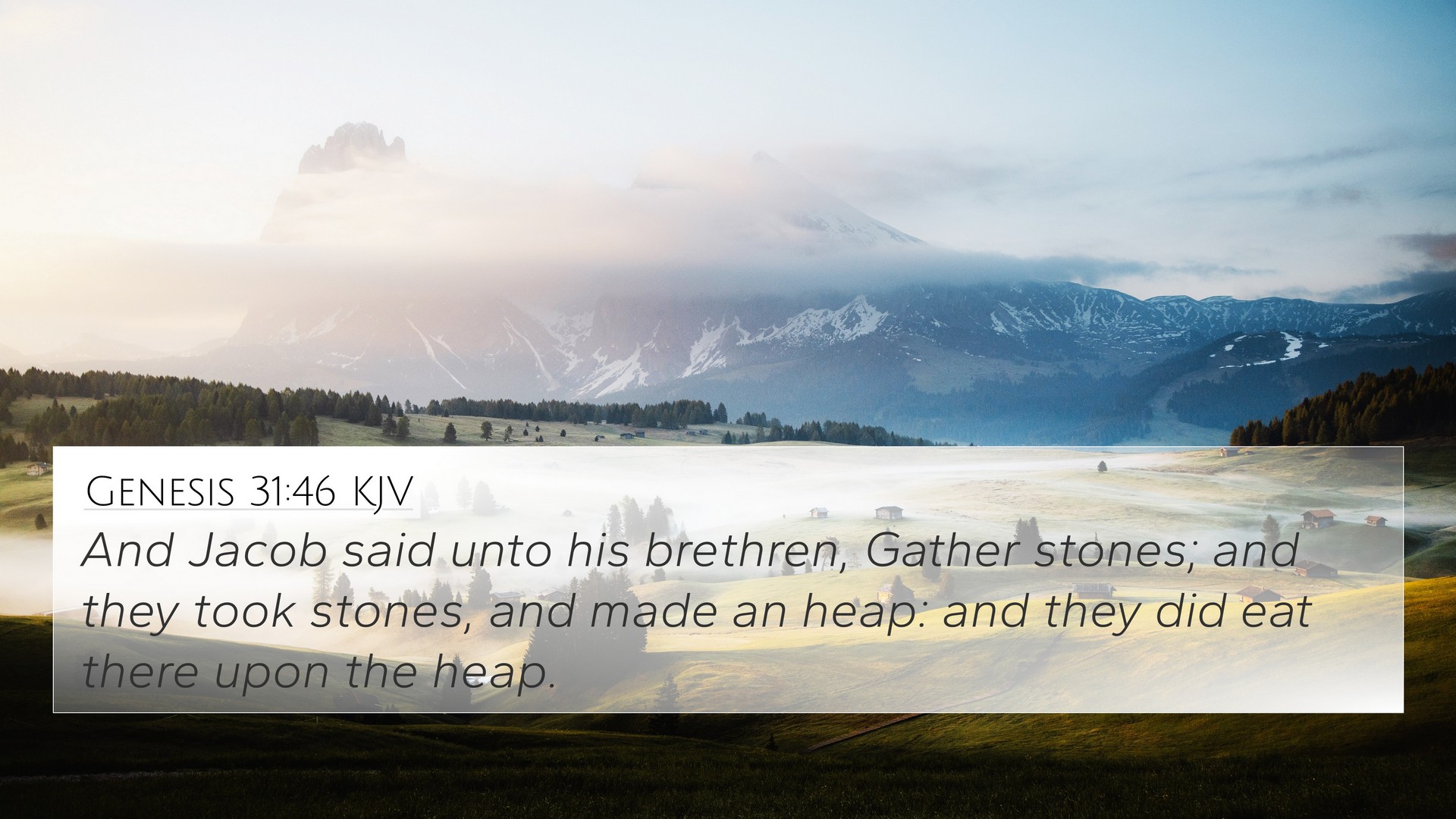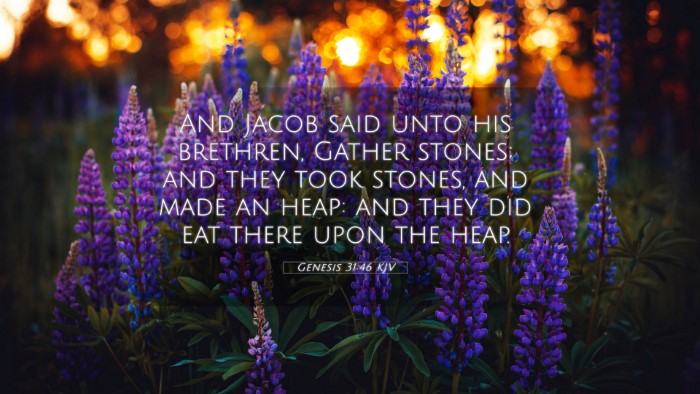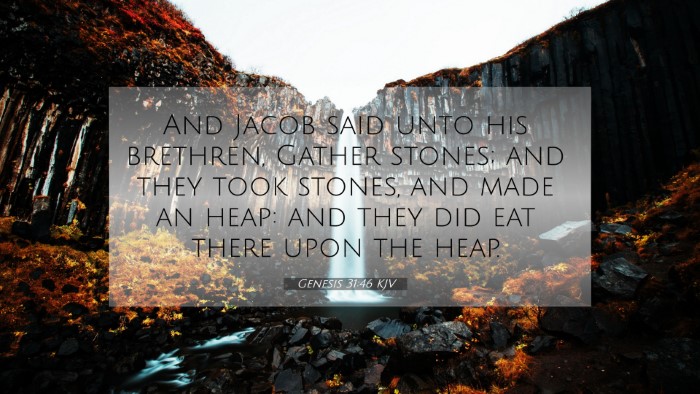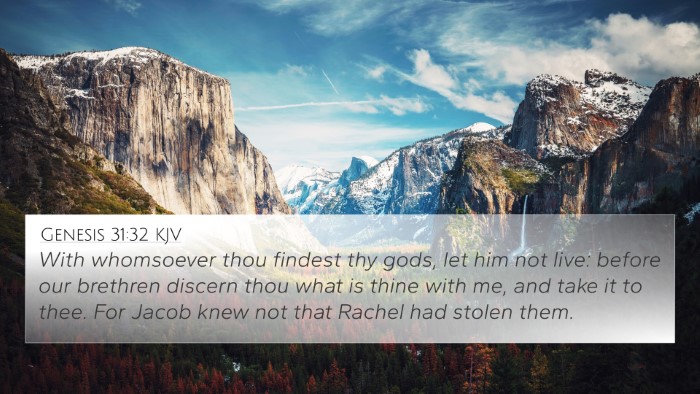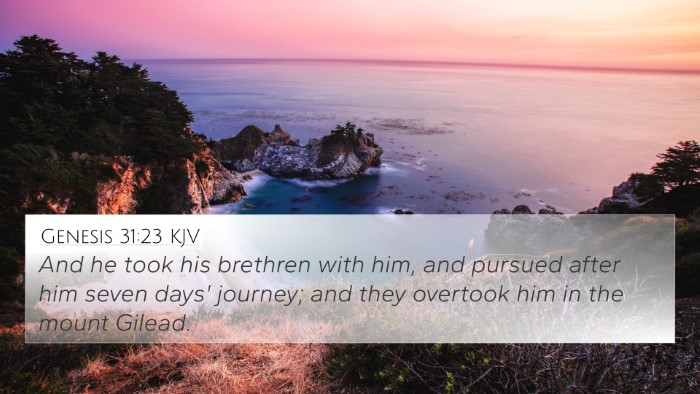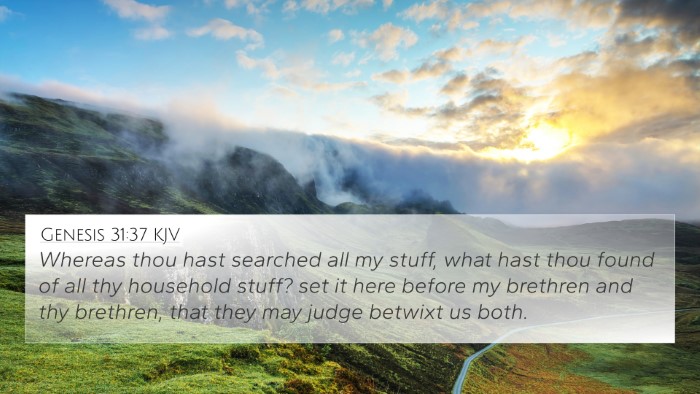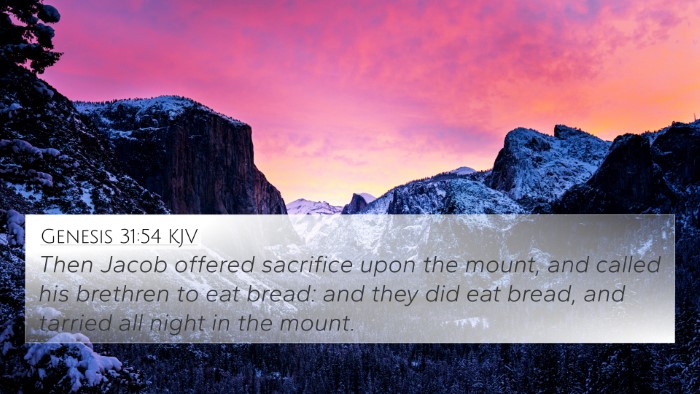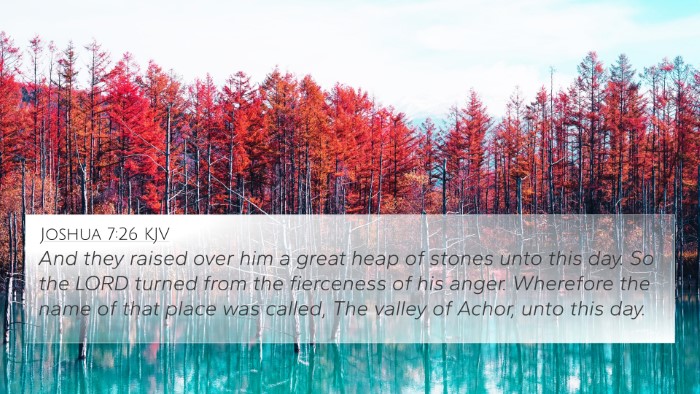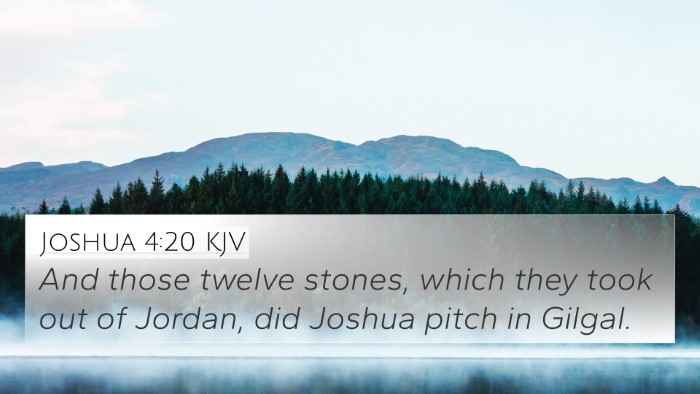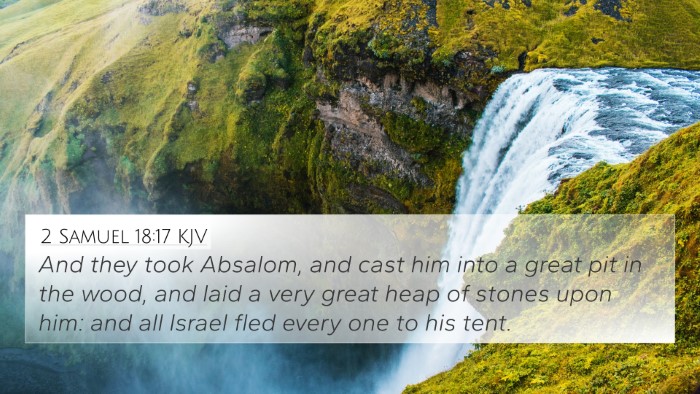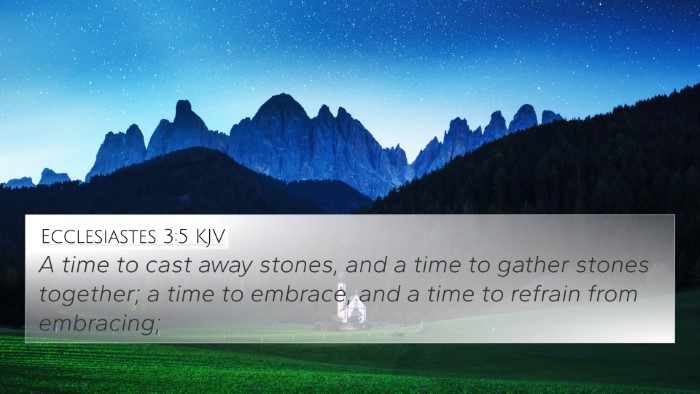Understanding Genesis 31:46
This verse is a pivotal moment in the narrative of Jacob and Laban, illustrating themes of covenant, family ties, and the complexity of familial relationships. The insights derived from public domain commentaries, such as those of Matthew Henry, Albert Barnes, and Adam Clarke, shed light on its meaning and significance.
Verse Context and Summary
Genesis 31:46 states:
“And Jacob said unto his brethren, Gather stones; and they took stones, and made a heap: and they did eat there upon the heap.”
This passage occurs during a tense moment where Jacob and Laban negotiate a separation, and it signifies the establishment of a covenant between them through the symbolism of a stone heap.
Commentary Insights
**Matthew Henry’s Commentary** emphasizes the act of gathering stones as a metaphor for building a testimony or a monument of remembrance regarding their agreement, marking the end of their conflict.
**Albert Barnes’ Notes** highlight the cultural significance of this heap of stones, suggesting it serves as a boundary and reminder of the promises made, illustrating a common practice in ancient Near Eastern covenant-making.
**Adam Clarke’s Commentary** provides additional insight, pointing out the importance of the meal shared on this heap, symbolizing peace and mutual agreement, and marking a new chapter for Jacob and his family.
Thematic Connections
This verse is rich with themes that connect with other scriptures throughout the Bible. The act of creating a stone heap as a covenantal marker is seen in several instances:
- Genesis 28:18-19: Jacob places a stone, which he later anoints, marking sacred ground.
- Joshua 4:6-7: The Israelites set up stones as a memorial after crossing the Jordan, linking it to God’s faithfulness.
- Genesis 21:30: Abraham makes a covenant with Abimelech using sheep and oxen, showing the significance of physical markers in agreements.
- 1 Samuel 7:12: Samuel sets up a stone called Ebenezer to remember God's help and guidance.
- Genesis 31:54: The subsequent reference to the meal indicates the importance of fellowship in agreements.
- Exodus 34:27: God commands Moses to write down His words, emphasizing the importance of recording covenants.
- Isaiah 62:2: Speaking of God's promises, it emphasizes how names can signify God's covenantal promises.
Cross-Referencing the Biblical Texts
When examining Genesis 31:46, various cross-referenced themes provide a comprehensive understanding:
- Creation of Covenants: Such as in Genesis 9:12-17 regarding God's covenant with Noah.
- Family and Relationships: Echoed in Ephesians 5:22-33 about marital commitment.
- Peace and Reconciliation: Related to Matthew 5:9, “Blessed are the peacemakers.”
- Divine Guidance: Reflected in Proverbs 3:5-6 about trusting in the Lord for guidance in decisions.
Ways to Apply This Understanding
For those seeking to deepen their Bible study using tools for cross-referencing, consider using a Bible concordance or integrated Bible cross-reference guide. These resources can help uncover connections between both the Old and New Testaments, allowing for a richer understanding of the narratives.
Conclusion
Genesis 31:46 serves as a reminder of the importance of commitments made within family structures, the symbolism of shared meals, and the physical manifestations of spiritual truths through covenants. By linking this verse to other scriptures, we gain a holistic view of its themes and significance in the broader narrative of Scripture.
